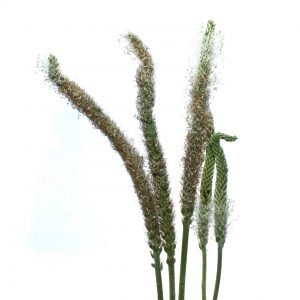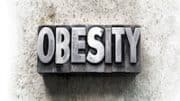Psyllium can help with weight loss!
Dietary fiber seems to help lower levels of LDL cholesterol, possibly by absorbing fat in the gut or by binding sugars to carbohydrates. Fiber can come from beans, oats, produce, and whole grains or you can add a supplement. I recommend whole foods, but if you are dieting, the fiber you need may be difficult to acquire at high levels. But Metamucil, Benefiber, and Citrucel all can add fiber but psyllium is the one that is what we are here to discuss, and that is found in Metamucil. Psyllium supplements contain blond psyllium seeds husks can also help cut cholesterol levels, as well as ease constipation and soften the stool, and perhaps help control high blood pressure, diabetes, cancer, weight control, and kidney disease. Talk to your doctor first because, as with other supplements, Psyllium can interfere with the action of certain medications.
Psyllium is the common word used to refer to fibers taken from the plant known as Plantago ovata or Plantago psyllium. The fiber is characterized by being water-soluble (hydrophilic) and gel forming while possessing low fermentability. It is commonly sold under the brand name Metamucil.
Psyllium is proven to increase fecal size and moisture, and this makes sense because fiber keeps water into your colon. Psyllium is used clinically as a bulk laxative, an agent that has laxative effects but is secondary to increasing fecal size. It is a gentler laxative when compared to chemical agents like caffeine or Senna. This bulk occurs due to water and gas absorption in the small intestines and colon to give the stool more size and softness. This bulk is retained in the colon because psyllium is poorly fermented by bacteria in the colon. The most common characteristics of stool following supplementation of psyllium are soft, slim, and passable. You will require less bearing down to pass them. Psyllium appears to be more effective at forming feces and appears to be one of the few fiber sources not associated with excessive flatulence. Chicory root, in particular, is associated with more flatulence.
I have already written about fiber and weight loss and a tip about filling up on fiber. The question from this visitor is slightly different. They want to know specifically about psyllium, so let’s review the research.
Research on psyllium:
- Weight loss: Four studies were reviewed, and they showed no convincing evidence for a weight-reducing effect of psyllium. Although this is true, the studies were poorly designed, and several were funded by entities that had an interest in psyllium failed. One piece of research, in particular, looked at psyllium versus sibutramine and found that sibutramine was more effective[1].
- Appetite: Many different mechanisms by which fiber may affect appetite have been suggested. These include the release of intestinal peptides involved in energy regulation[2], reducing the rate of gastric emptying[3], or modifying postprandial (after meal) glycemic response and regulated the interactions of carbohydrates and appetite[4]. The basics are that 20g of psyllium husk before the meal significantly increased meal-induced satiety[5].
-
Anderson, JW, KM Randles, CW Kendall, and DJ Jenkins. “Carbohydrate and Fiber Recommendations for Individuals with Diabetes: A Quantitative Assessment and Meta-Analysis of the Evidence.” Journal of the American College of Nutrition 23, no. 1 (February 1, 2004): 5–17. [PubMed]
-
Bergmann, JF, O Chassany, A Petit, R Triki, C Caulin, and JM Segrestaa. “Correlation between Echographic Gastric Emptying and Appetite: Influence of Psyllium.” Gut 33, no. 8 (August 1, 1992): 1042–43. [PMC]
-
Delargy, HJ, KR O’Sullivan, RJ Fletcher, and JE Blundell. “Effects of Amount and Type of Dietary Fibre (Soluble and Insoluble) on Short-Term Control of Appetite.” International Journal of Food Sciences and Nutrition 48, no. 1 (January 1, 1997): 67–77. [PubMed]
-
Karhunen, L. J., K. R. Juvonen, S. M. Flander, K.-H. Liukkonen, L. Lahteenmaki, M. Siloaho, D. E. Laaksonen, K.-H. Herzig, M. I. Uusitupa, and K. S. Poutanen. “A Psyllium Fiber-Enriched Meal Strongly Attenuates Postprandial Gastrointestinal Peptide Release in Healthy Young Adults.” Journal of Nutrition. American Society for Nutrition, February 10, 2010. doi: 10.3945/jn.109.115436
-
Kazmi, SA, M Khan, GR Mashori, A Saleem, N Akhtar, and A Jahangeer. “Influence of Sibutramine, Orlistat and Ispaghula in Reducing Body Weight and Total Body Fat Content in Obese Individuals.” Journal of Ayub Medical College, Abbottabad : JAMC 21, no. 2 (April 1, 2009): 45–48. [PubMed]
The bottom line: Although the evidence is conflicting, psyllium should help with weight loss. There are enlight positive effects for carbohydrate absorption and cholesterol-lowering to indicate that we all should add psyllium to our diets. More research is needed on weight reduction, but with the appetite effects from multiple studies, it would be surprising if psyllium does not reduce weight. The problem really is that there is not a financial incentive to study the effect.










Be the first to comment on "Visitor Question: Will psyllium help with weight loss?"